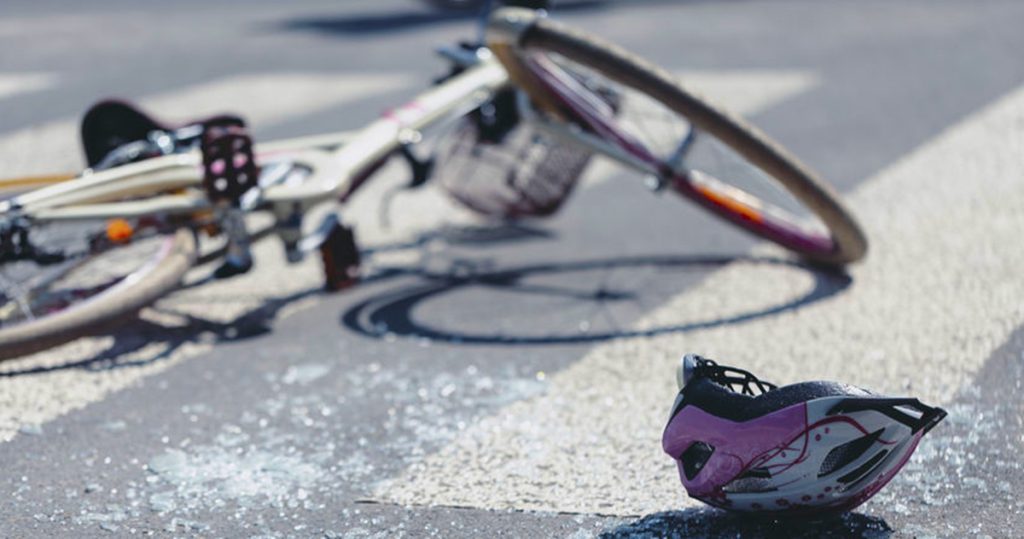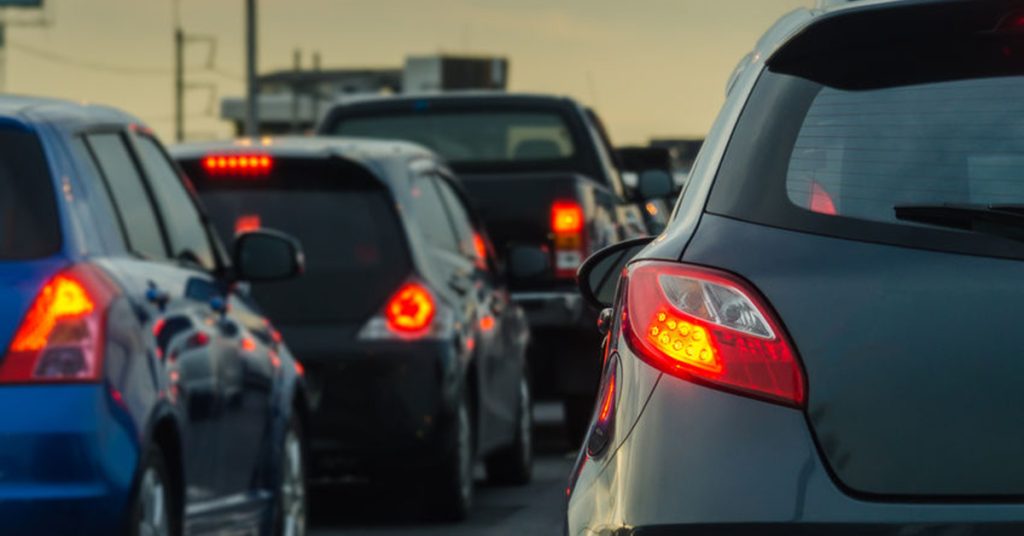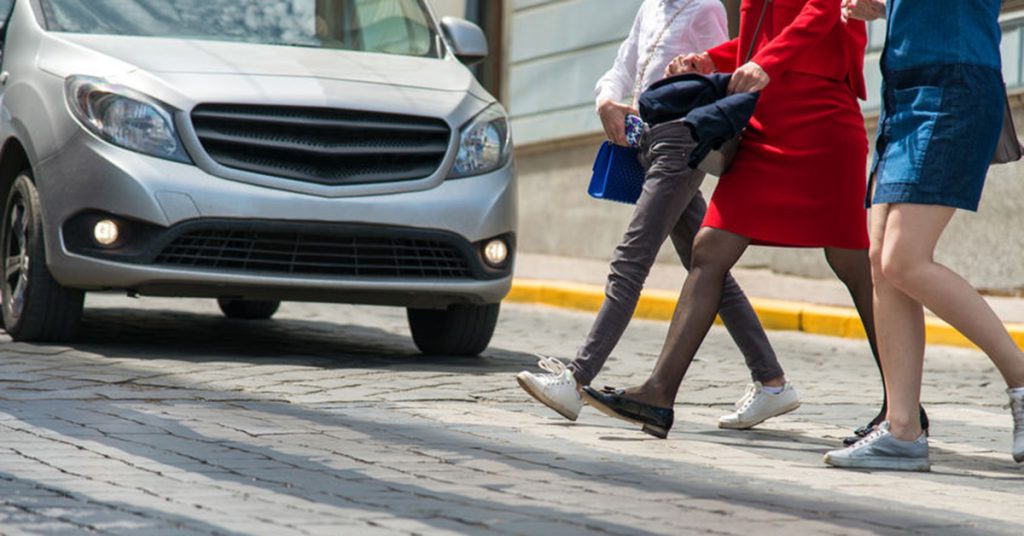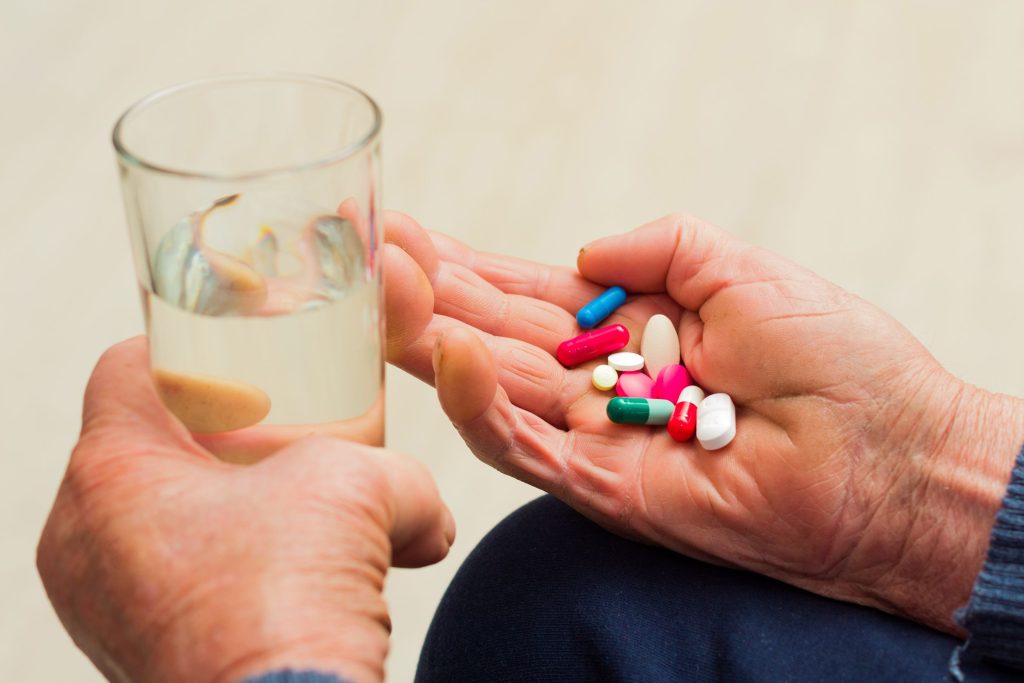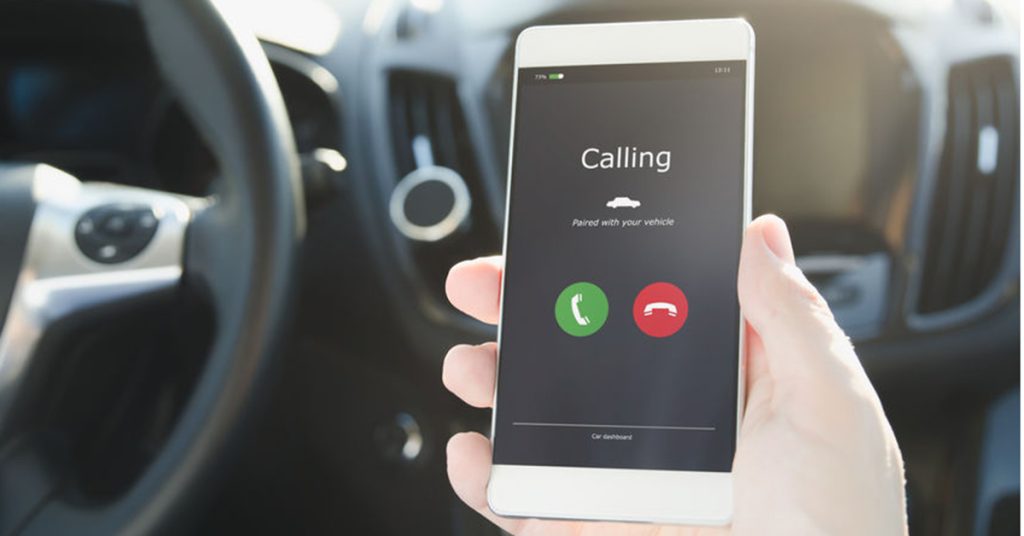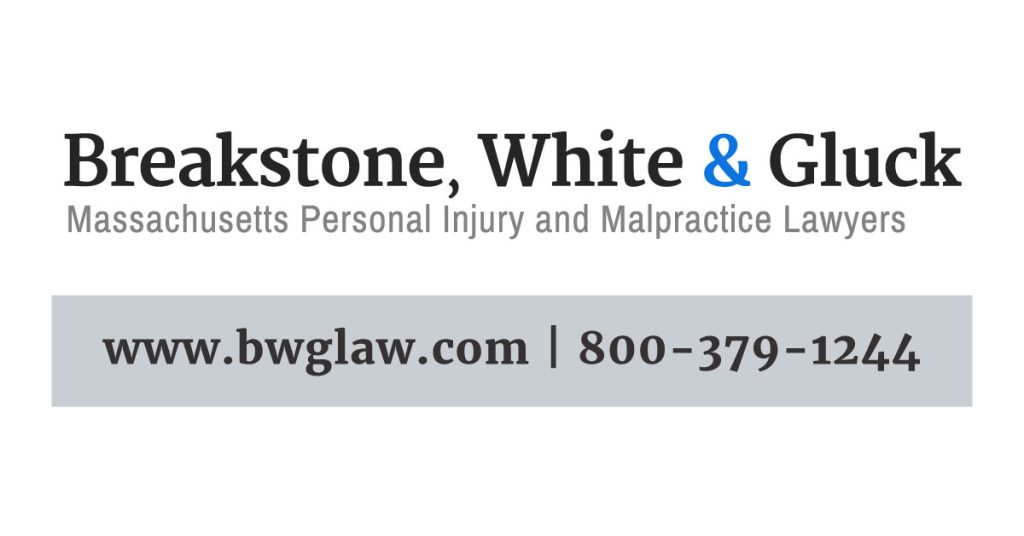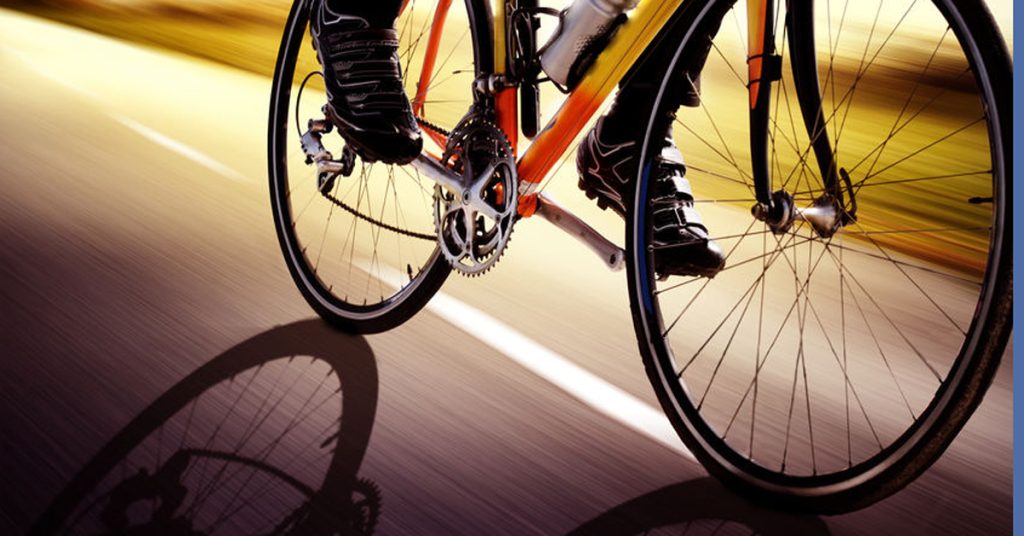Distracted Driving Accidents Have Seriously Injured Cyclists in Massachusetts, Pennsylvania and Florida
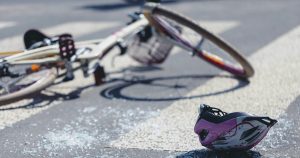
Over the past year, distracted driving accidents have seriously injured cyclists in Massachusetts and other states.
During the past few months, you may have noticed more bicyclists and fewer cars out. Massachusetts bike shops have confirmed that sales are way up since the COVID-19 emergency began. And during an uncertain time, it has been nice to see people enjoy bikes.
But now, as Massachusetts slowly re-opens the economy, driving patterns are changing again. More cyclists are out, but increasingly, so are cars. Coincidentally, traffic laws have also changed. As of April 1st, the Massachusetts hands-free driving law took effect, banning all hand-held cell phone use. Going forward, drivers must connect to voice-activated technology.
This is an important new law for cyclists, who often travel to the immediate right of a vehicle in the bike lane or roadside. When a driver doesn’t pick up a phone, this takes away an unexpected movement, a layer of danger to cyclists.
But several other layers remain. The reality is many drivers do not even realize cyclists are nearby. But cyclists are close and are vulnerable to your quick, unpredictable movements, such as when you pick up a cell phone, reach into your glove compartment or open a fast-food bag as you drive. Or when you tend to your children or other passengers.
If you are a Massachusetts driver, now is the time to set up your vehicle for hands-free cell phone use. Commit to follow the new law and drive safely.
Also commit to check for cyclists. When you stop at a traffic light or stop sign, check in front of you, to each side and behind you. Bicycle accidents often happen because cyclists are approaching from behind cars. Many drivers neglect to look there. Drivers are less likely to look if they are focused on their cell phone or texting while driving.
Many communities are expanding sidewalks or changing traffic patterns to make room for social distance. This means you may encounter cyclists in new areas. Approach slowly, with caution and patience.
Recent Cases: Distracted Driving Accidents and Injuries to Cyclists
Over the past year, there have been several news stories about distracted driving, leading to cyclist injuries and deaths. Even as states such as Massachusetts and Maine have strengthened laws, the number of distracted accidents continues to rise.
Ipswich Texting While Driving Crash Kills Cyclist
On March 26th, just days after the Massachusetts stay at home advisory took effect, there was a tragic crash on an Ipswich Road. According to the The Boston Globe, a 43-year-old driver fatally struck a cyclist in the North Shore community, also injuring two other family members on bikes. Ipswich Police and the Essex County District Attorney’s office announced the driver has been cited for motor vehicle homicide by negligent operation, marked lanes violation and composing, sending and reading an electronic message. A clerk magistrate will decide whether a criminal complaint will be issued.
Pennsylvania Driver Accused of Texting in Cyclist’s Death
In April 2019, a Pennsylvania woman was accused of texting while driving. Penn Live, a local news website, reported she struck a male cyclist in Mount Joy Township. Forensic analysis determined she had sent a text message a minute before the crash. She received a message, then tried to call 911, as a neighbor also called in.
The cyclist died from multiple traumas nine days later. In this case, the driver was charged with felony homicide by vehicle, misdemeanor involuntary manslaughter, and cited with traffic citations in the crash, according to Penn Live.
Florida Distracted Driving Case Ends in Fine, Community Service
In January 2020, a Florida woman pleaded no contest in a fatal crash which killed two cyclists and seriously injured several others. In November 2018, the woman had struck the group of 14 cyclists with her vehicle. They were members of a local bicycle club riding in Davie, a community in Broward County.
According to the Sun Sentinel newspaper, the woman admitted to reaching into her glove compartment for her cigarettes. She also said she was temporarily blinded by sun glare. Police allege the woman was also traveling 70 mph on a 55 mph road when she struck the cyclists. This was a horrific crash and many involved were deeply upset with the outcome. In this case, local prosecutors maintained the woman’s actions did not warrant a criminal charge of motor vehicle homicide, according to the Sun Sentinel. So the driver pleaded no contest to careless driving, leaving court with orders to pay a $1,000 fine and complete 120 days of community service. She also lost her driver’s license for six months.
Free Legal Consultation
Boston Bicycle Accident Lawyers – Distracted Driving Injuries to Cyclists
At Breakstone, White & Gluck, our Boston bicycle accident attorneys have more than 100 years combined experience. We represent cyclists and others who have been injured by distracted driving, including a driver’s negligent use of a cell phone.
Distracted driving accidents can seriously injure cyclists. We urge you to act right away if you suspect a driver’s cell phone use may have caused your injuries. If you or a loved one was injured, it is important to consult an experienced lawyer to learn your rights. You may be entitled to pursue financial compensation for your medical bills, lost wages, pain and suffering and other financial losses.
For a free legal consultation, contact Breakstone, White & Gluck at 800-379-1244 or 617-723-7676. You can also use our contact form.
Keeping Your Massachusetts Auto Insurance Policy in Good Standing During COVID-19 Emergency
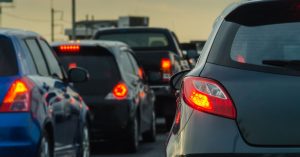
Save yourself time and frustration. Our tips for keeping your Massachusetts auto insurance policy in good standing during the COVID-19 state of emergency.
Be proactive and keep your auto insurance policy in good standing during the COVID-19 emergency. When you move or cannot make payment, let your auto insurer know in advance. This will save you a great deal of time, frustration and money during an already stressful time.
First, some news on a small savings. Due to a decrease in driving, many insurers have committed to giving Massachusetts drivers a 15 percent discount for April and May (roughly $30 in savings on a $1,200 policy), according to The Boston Globe. Not a large savings, but you don’t have to be proactive here. Just look for the credit to appear on your premium statements or a rebate check to arrive in the mail.
How Auto Insurance Works For You
Auto insurance is a critical tool in protecting yourself and your family from injury and major financial loss in a car accident or truck crash. If you were negligent in a car crash, you need to have coverage to financially compensate any victims for their medical expenses and other losses. This protects your other financial assets.
When another driver is at fault and causes your injuries, you should be entitled to seek compensation from their auto insurance policy. What’s unfair is this coverage may not be available if the driver is uninsured or is underinsured and has only purchased the state’s minimum requirement for compulsory coverage.
Many drivers should also purchase optional coverages to protect themselves. Read more in our article, “Understanding and Buying Massachusetts Car Insurance.”
Keep Current with Auto Insurance Billing
If you are unable to pay your auto insurance premium, notify your insurance agent or insurer in advance of your payment date. Auto insurers have the right to cancel your policy for non-payment and they can do so in short time. This can lead to extra fees and take up a lot of your time. The worst scenario is if you are stopped by a police officer when your auto insurance has lapsed. You could be fined and your license could be suspended, adding another layer of time and frustration.
Avoid this stress. Call your insurer and request a payment extension. The Massachusetts Department of Insurance has advised insurers “to work with consumers to be flexible and make every possible effort to avoid policy cancellation.” Read this advisory.
And if you don’t have electronic access to your auto insurance policy, ask about setting it up now so you can monitor your account.
Update Your Address
The Massachusetts Department of Insurance calls this “the single most important thing you can do to protect yourself from a claim denial.” Your insurer sets your premium in part based on your address and the risk of collision there. If you don’t update your address, your insurer may still pay claims for your compulsory coverage. Very likely they will deny claims for your optional coverages.
If you have moved or returned home from college, notify your insurer that you have changed your address and are garaging your vehicle in a different location. Your insurance company may (or may not) provide you with some leeway up to 30 days. Regardless, update your policy immediately. You also have an obligation to update your motor vehicle registration and license and you can do this online.
Don’t own a car? Remind your family members to add you back to their policy.
Reconsider Your Coverages
As Massachusetts looks to reopen, some workers will telecommute. Still, we urge you not to reduce your auto insurance coverages to save money. Not yet. But start a conversation with your auto insurance agent about your current coverages and if they meet your needs.
Start by asking about your optional coverages. Specifically, do you have enough MedPay coverage? And do you need more underinsured and uninsured coverage? A note, if you can only raise one, purchase more MedPay, which will help pay your medical bills. For a few dollars, you can increase your coverage by $10,000 or more and this makes a big difference). Then consider raising your underinsured and uninsured coverages as well. If you do, make sure you purchase the same amount of bodily injury coverage.
If you are spending more time on a bicycle, we urge you to wear a helmet first and foremost. You will also benefit by adding auto insurance coverages to help with your medical expenses and other losses. You may be able to add coverages to your own auto insurance policy or to a household policy. Read our article, “What Every Massachusetts Bicyclist Needs to Know About Car Insurance.”
Going forward, if you transition to working at home more, monitor your mileage. You may be able to request a low mileage discount and save money without losing any coverage.
Also, consult your insurance agent if you begin driving as part of a new job or as an independent contractor for a restaurant or business. If you are in a car accident while making work deliveries, your private passenger auto insurance policy will not cover you.
The Massachusetts Department of Insurance advises drivers and businesses to ask their insurers about endorsements for delivery drivers during the Massachusetts COVID-19 state of emergency. Read the state’s advisory, “Insurance FAQs During COVID-19 Public Health Crisis.”
About Breakstone, White & Gluck – Boston Car Crash Lawyers
Breakstone, White & Gluck is consistently recognized as a top-rated personal injury law firm in Boston. With more than 100 years combined experience, our attorneys have assisted thousands of car accident victims in Boston, Cambridge, Quincy and across Massachusetts. We have a track record of successful results covering nearly 30 years.
For a free legal consultation, contact Breakstone, White & Gluck at 800-379-1244 or 617-723-7676. You can also use our contact form.
In Massachusetts, Less Traffic Congestion, But Drivers are Speeding Dangerously Down Open Roads
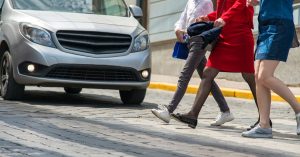
In Massachusetts, traffic is lighter during the COVID-19 emergency, but drivers are being warned to slow down.
During the COVID-19 emergency, Massachusetts residents are getting an unprecedented look at life without traffic congestion. With fewer cars out, there have been fewer accidents. But the drivers who are out have been speeding down open streets. State transportation officials say the high speeds are contributing to traffic fatalities.
The rate of traffic fatalities doubled in April, when traffic dropped by 50 percent on some highways, according the Massachusetts Department of Transportation (or MassDOT). The Boston Globe reported that 28 people died in April, compared to 27 during April 2019, when there was no disruption to traffic.
Speeding and distracted driving have contributed to fatal accidents. According to MassDOT, the fatal crashes resulted in the deaths of drivers, passengers, two motorcyclists and three pedestrians. In Boston, a cyclist was killed by a large truck near Massachusetts and Harrison avenues.
In Boston, Mayor Marty Walsh urged drivers to slow down during his briefing last week. News briefing posted May 1.
“With less traffic, what we’re starting to see is increased speed,” Walsh said. “So the crashes that do happen have been more severe due to the high speed impacts. Even an increase of four to five miles per hour can make a big difference in terms of injuries and possible death.”
The MassDOT did not provide overall crash data for last month. Preliminary data shows two-thirds of crashes happened on local roads.
When traveling in their communities, drivers must remember that they share the road with cyclists and pedestrians. Right now, there are more people out, of all ages. It is essential to stop at crosswalks, yield to pedestrians and drive slowly.
It is also essential to watch for cyclists and practice situational awareness, especially when turning at intersections. Remember that cyclists are allowed to travel in bike lanes, on the right side of the road or in the middle of the lane if necessary for safety. Because cyclists may need to change their lane (for example, to avoid an illegally parked car), it is important to provide cyclists with ample room to make safe decisions.
Just How Slowly Should You Drive?
As a first step, commit to follow the speed limit or travel even slower when necessary. By doing so, you leave yourself more time to stop and prevent a crash before it happens.
It is important to remember that you control your speed and research has found fatal injuries are less likely at lower speeds. Consider a driver who was traveling at 40 mph and hit a pedestrian. There is a 73 percent likelihood that the driver will cause the pedestrian severe injury or death, according to the Vision Zero safety campaign. At 30 mph, the risk for severe injury or death is reduced to 40 percent. At 20 mph, there is a 13 percent likelihood of causing severe injury or death.
Fewer Drivers, Fewer Tickets and Fewer Car Accidents
The Boston Globe reported on Massachusetts traffic activity on April 30th. As the state responds to COVID-19, there has been a dramatic decline in traffic, citations and accidents.
From March 23 to April 26, more than 2,600 car accidents were reported across Massachusetts. 12,000 car accidents were reported during the same period in 2019.
Another measure of driving activity is usually traffic citations or moving violations, such as speeding and parking violations. But during the first three weeks of April 2020, as residents stayed home and law enforcement responded to COVID-19, Massachusetts police departments issued 95 percent fewer tickets for moving violations compared to the same period in 2019.
While traffic remains light overall, Massachusetts State Police have also observed a “significant surge” in drivers speeding more than 100 mph, according to the Globe. Specifically, drivers have also complained about speeding on the MassPike. Now, the agency plans to increase patrols at random times and places.
Breakstone, White & Gluck – Boston Car Accident Lawyers
Free Legal Consultation
Breakstone, White & Gluck represents those who have been injured by the negligence of others in Massachusetts. Our personal injury attorneys provide experienced representation after motor vehicle accidents, including car accidents, truck crashes, pedestrian accidents and bicycle collisions.
Learn your legal rights after an accident. For a free legal consultation, contact Breakstone, White & Gluck. Call 800-379-1244 or 617-723-7676 or use our contact form.
COVID-19 Safety for Cyclists and Pedestrians in Boston and Massachusetts

Massachusetts safety groups share COVID-19 advisories for cyclists and pedestrians.
At Breakstone, White & Gluck, our attorneys encourage you to follow the Massachusetts “stay at home” advisory. When you go out for essential errands, the CDC advises you to wear a face mask and follow social distance guidelines, staying at least 6 feet apart from other people.
Yet it is also important to get outside for a few minutes of fresh air each day, even if you just stay in your own yard or walk down the street. With many of us so distressed, this can be hard to do, but if you are healthy and able, we have compiled these safety tips from the CDC, the Massachusetts Covid-19 website and bike and pedestrian groups we support.
Massachusetts Stay at Home Advisory
State officials have advised light exercise, such as a walk or run around your neighborhood, is acceptable but you have to follow social distancing and other guidelines. Playing close contact sports with others is against the state guidelines. Mass DPH Health Advisory: Stay at Home (March 24, 2020).
MassBike
MassBike issued a COVID-19 safety update, dated April 19, 2020, saying its response has generally been to follow the Massachusetts Governor’s Office and the Centers for Disease Control. Cyclists can ride, “But MassBike certainly agrees with, and wants to reiterate, the official message of #StayHomeSaveLives. We encourage you all to stay home as best you can.”
MassBike’s safety tips included:
- Never ride if you are ill or are experiencing of COVID-19.
- Ride solo or only with others you live with.
- Wear a mask.
- Carry your supplies so you can avoid stopping and and interacting with people.
- Look for a place where others are not riding.
- Ride with caution.
The CDC recommends people stay at least six feet apart, but how can you measure distance when you are moving? That’s a good question and in its post, MassBike mentioned a Belgium study on social distancing on bikes. The study advises people to walk about 12-15 feet away to maintain safe social distancing or about 30 feet for running and slow biking. When cycling fast, bicyclists should keep at least 60 feet apart.
Boston Cyclists Union
The Boston Cyclists Union says yes, cyclists can still ride. If you do, the organization recommends riding alone or only with others in your home. It also suggests wearing a mask to protect yourselves and others. Read the Boston Cyclists Union advisory, April 1, 2020.
WalkBoston
WalkBoston released an update on March 27, 2020. It also warned the public to practice social distancing when walking. The organization, active in Boston and across Massachusetts, offers a weekly email newsletter.
Massachusetts City and Town Advisories on Expanded Recreation Areas
Some communities are talking about opening up roads so pedestrians and cyclists have more room to exercise and follow social distance guidelines. In Brookline, the Transportation Board removed parking and traffic lanes and opened up parts of Beacon Street, Brookline Avenue and Harvard Street to pedestrians.
The City of Boston also closed three Department of Conservation and Recreation (DCR) parkways to traffic, giving pedestrians and cyclists more room. These include the William J. Day Boulevard, Francis Parkman Drive and Greenough Boulevard.
In Cambridge, the City Council was also considering closing roads along Memorial Drive.
Final Note:
In addition to taking COVID-19 safety precautions, cyclists must remember to follow fundamentals, such as always wearing a properly-fitted helmet and using rear and front lights on your bike. If you need a new helmet, supplies or a tune-up, local bike shops are considered “essential businesses” and are allowed to open. Finally, both cyclists and pedestrians can protect themselves by wearing brightly colored clothing or a neon safety vest to stand out. While traffic has decreased on many roads, there are still many drivers out and it’s important to be vigilant about safety.
If you are interested in learning more about bike safety, consider checking out our articles:
Other COVID-19 Resources
CDC Advisory on Protective Face Masks
State of Massachusetts COVID-19 Updates
Consumer Reports, “Bike Riding Safety During the Coronavirus Pandemic,” April 10, 2020
Free Legal Consultation – Boston Personal Injury Lawyers
Breakstone, White & Gluck supports cycling and pedestrian safety in Massachusetts. Through our Project KidSafe campaign, we are committed to protecting children on bicycles from concussions and traumatic brain injuries.
If you have been injured, learn your legal rights. Breakstone, White & Gluck represents those injured by negligence and recklessness throughout Massachusetts, including in car accidents, truck accidents, motorcycle accidents, bicycle accidents and pedestrian accidents. For a free legal consultation, contact us at 800-379-1244 or 617-723-7676. You can also use our contact form.
FDA Warning: Stop Taking Zantac and Ranitidine Medications
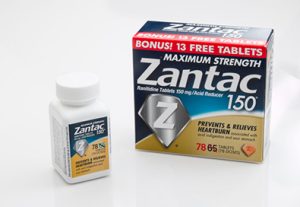 If you take Zantac or ranitidine, it is time to change your medication. On April 1st, the Food and Drug Administration (FDA) asked manufacturers to immediately withdraw all medication from the market. This is due to concerns it contains a chemical which could cause cancer.
If you take Zantac or ranitidine, it is time to change your medication. On April 1st, the Food and Drug Administration (FDA) asked manufacturers to immediately withdraw all medication from the market. This is due to concerns it contains a chemical which could cause cancer.
You will no longer be able to purchase the medication over the counter or refill existing prescriptions, according to the FDA. The agency has recommended alternative medications which you can discuss with your physician. While this announcement may come as a surprise during the COVID 19 outbreak, many had anticipated this move after the FDA’s initial warning last September and the subsequent recall of Zantac, the popular brand name medication, in October. Many other manufacturers have also issued voluntary recalls over the past six months.
The FDA announced testing showed ranitidine contained the contaminant N-Nitrosodimethylamine, or NDMA, which is a probable human carcinogen. The agency said the decision was made on the “best available science.” NDMA is a known environmental containment which is already present in our surroundings. It is found in water, meat, dairy and vegetables, but at low levels is “not be expected to lead to an increase in the risk of cancer,” according to the FDA.
When testing ranitidine, the FDA said it did not observe unacceptable levels in many drug samples. But ultimately, the agency decided the drug should not be available to consumers unless the quality can be assured.
Specifically, testing found the NDMA levels in some products increased in rising temperatures, which may be involved in distribution and a patient’s handling of the drug. And as the ranitidine product aged, so did NDMA levels.
This new FDA announcement will impact many people and present challenges. Patients can usually remember their daily medications. But Zantac is typically a short-term medication which is available in many ways, over-the-counter, by prescription or in a hospital. Because of this, many people may recall suffering from heartburn or a stomach ulcer, but may not remember which medication they took. Another challenge is the medication was sold under many brand names.
If you used Zantac or ranitidine, then experienced cancer or other illness or symptoms, you may want to learn more to guide you in your future medical care. You may also have the right to seek financial compensation to pay for your medical bills and other losses. At Breakstone, White & Gluck, our Boston product liability lawyers are now reviewing cases for patients who may be affected by Zantac and ranitidine injuries. For a free no-obligation legal consultation, call (800) 379-1244 or (617) 723-7676.
Here are a few points to remember:
Look for product names of ranitidine medications
Zantac was widely used. According to USA Today, before recall, there were 15 million prescriptions of Zantac annually. The manufacturer was Sanofi.
However, ranitidine was also sold under other names. It was manufactured by Dr. Reddy’s Laboratories Ltd., which manufactured ranitidine products sold by Dr. Reddy, Kroger and Walgreens. Brand names included American Health Packaging, Glenmark Pharmaceuticals, Precision Dose, Appco Pharma, Sandoz Inc. (a division of Novartis) and Northwind Pharmaceuticals.
Talk to your doctor about your ranitidine use
If you are taking a medication for heartburn or ulcers, carefully read the product labeling to see if it contains ranitidine.
If you are taking a ranitidine medication, stop and contact your primary care physician. The FDA recommends patients take an alternative heartburn medication, such as Pepcid (famotidine), Tagamet (cimetidine), Nexium (esomeprazole), Prevacid (lansoprazole) or Prilosec (omeprazole). Discuss these with your physician. There have been no NDMA impurities found with these products, according to the April 1st announcement.
You may be thinking you don’t want to reach out to your doctor during the COVID-19 emergency, but this type of preventative step is important. You may have other medical conditions or other medications which you need to consider. Your doctor can advise you on how to take your medications safely.
Take care to safely dispose the medication
Due to the COVID 19 outbreak, the FDA is advising consumers to follow the disposal directions on packaging and dispose of medications at home, rather than a drug take-back location in your community.
Zantac lawsuits have already been filed, with more expected
Patients have already filed Zantac lawsuits, alleging Sanofi, the manufacturer, failed to warn consumers that the medication contained NDMA and of potential risks. Our personal injury lawyers are advising and representing Massachusetts residents who may have been affected.
Free Legal Consultation – Breakstone, White & Gluck
With more than 100 years combined experience, Breakstone, White & Gluck represents those injured by defective products, including unsafe medication and defective medical devices in Massachusetts. If you have taken Zantac or another ranitidine medication subject to FDA action, you may have suffered illness and want to learn more about your legal rights. Contact our attorneys now.
For a free legal consultation, call our Boston product liability lawyers at (800) 379-1244 or (617) 723-7676. You can also send a message through our contact form.
Massachusetts Hands-Free Law Update: Fines Can Begin April 1, 2020
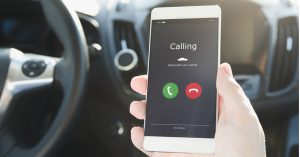
The Massachusetts hands-free driving law bans this action. Fines start today, April 1, 2020.
As of today April 1, Massachusetts police departments can start to issue citations and fines to drivers who violate the Massachusetts hands-free driving law. We encourage you to follow the Massachusetts COVID-19 “Stay at Home” advisory. But if you have to go out, you can help yourself drive more safely and avoid a fine by checking that your car is set up for hands-free mode. Even better? Read this update, but turn off your cell phone while driving. Many of us are exhausted and out-of-routine. Focus on the roads and what you need to get done, so you can get back home.
So far, many drivers are still picking up phones, despite the new law. During the initial grace period from Feb. 23-Mar. 31, police issued 4,500 written warnings across Massachusetts, according to a state official interviewed by WGBH. The official said drivers must become aware of both the law and that police are watching.
“…the police officers I’ve talked to seem to say that everyone who is pulled over says, “Yes, I’ve heard about it. Sorry. My mistake,” said Jeff Larason, director of highway safety at the Massachusetts Executive Office of Public Safety. (Listen to the WGBH segment in full).
Massachusetts passed a texting while driving law in 2010 but lawmakers spent nearly 10 years debating the handheld cell phone ban.
The Massachusetts hands-free driving law was passed by the Massachusetts Legislature in November 2019 and quickly signed by Gov. Charlie Baker on Nov. 29. To help drivers get ready, the state granted an initial grace period. Larason told WGBH 4,500 drivers had received written warnings (broadcast date: March 13). The Boston Globe reported State Police had issued 578 warnings to drivers, in just the first week. On Cape Cod, local police reported 150 verbal or written warnings in the first week (Source: South Coast Today via Cape Cod Times).
What the law allows and bans:
- The law states drivers cannot use any electronic device, including mobile telephones, unless the device is being operated in hands-free mode.
- Drivers can only touch cell phones and mobile phones once to activate hands-free mode.
- Cell phones must be properly mounted to the windshield, dashboard or center console and not impede with operation. This is the only way drivers are allowed to use GPS or voice to text technology such as Bluetooth.
- Drivers are specifically not allowed to touch phones for texting and emailing. Use of apps, video or Internet is also prohibited.
- Drivers who are 18 and younger are not allowed to use cell phones behind the wheel. Hands-free is illegal and can result in violation of their Massachusetts Junior Operator’s License.
- You may be stopped. But you are not allowed to pick up your phone at red lights or stop lights.
- You can pick up your cell phone and make a call if you are in a stationary position, outside a travel lane or bicycle lane.
- There is also an exemption for emergency professionals who need to pick up the phone for calls and those calling 911. 911 calls must be taken seriously. The state advises drivers to make every attempt to pull over before calling 911 – even if you are in hands-free mode.
Violations of the Massachusetts Hands-Free Driving Law
Police in Massachusetts can now start issuing tickets. Here are the penalties:First offense: $100 fine.
Second offense: $250 fine and distracted driving education.
Third offense: $500 fine and distracted driving education.
With a third offense, you may face an insurance surcharge.
Related:
Massachusetts hands-free driving law, Mass.gov
Breakstone, White & Gluck – Boston Personal Injury Lawyers: 800-379-1244
With more than 100 years combined experience, Breakstone, White & Gluck specializes in representing plaintiffs in personal injury cases involving car accidents, truck accidents, pedestrian accidents and bicycle accidents. Our attorneys have extensive experience handling cases for clients injured by negligent use of cell phones and texting while driving. We represent clients across the state of Massachusetts in car accident cases, including in Boston, the North Shore, the South Shore and Cape Cod.
We are open and working remotely for our clients during the state’s COVID-19 advisories. If you have been injured, we are providing free legal consultations at 800-379-1244 or 617-723-7676. You can also use our contact form.
COVID-19 Update for New and Existing Clients
Breakstone, White & Gluck is open. Here is our latest update on how we are serving clients during the COVID-19 crisis: www.bwglaw.com/covid-19.
COVID-19: How Can You Help in Massachusetts?
 We all want to get through the COVID-19 crisis. The best way to make a positive impact is to stay home as much as possible. As you wait it out, remember you are living with temporary restrictions. But there are still some important steps you can take to help yourself, your family, community and local businesses now and in the weeks to come.
We all want to get through the COVID-19 crisis. The best way to make a positive impact is to stay home as much as possible. As you wait it out, remember you are living with temporary restrictions. But there are still some important steps you can take to help yourself, your family, community and local businesses now and in the weeks to come.
Wash Your Hands. This is a critical step, especially now. Read the CDC’s page, “When and How to Wash Your Hands.”
Protect Your Home and Family Members. The CDC has published an easy-to-print COVID-19 household checklist. Put this on your refrigerator or somewhere visible so everyone in your family can see it. Check out these other CDC advisories too: cleaning and protecting your home and managing stress and anxiety. Share these with family members so you can help each other keep up a routine, along with regular exercise and proper rest.
Social Distancing. Stay home as much as you can. If you have to go out, stay at least six feet away from others. Don’t shake hands, hug or make physical contact.
Look for COVID-19 Messages on Business Websites. Look for COVID-19 messages on websites – before you visit the grocery store, pharmacy or any business. Many businesses are closed due to Gov. Charlie Baker’s “Stay-at-Home” – Essential Services Only order. Grocery stores and pharmacies remain open as essential services. Do your part as a customer and follow their guidelines to protect their hardworking employees and the public.
Connect. Stay connected to friends and family, especially older adults who live alone. Not just by social media or text messaging. Make regular contact by phone or even better, through a video chat tool. This way you can really see and hear how your loved ones are doing – and if they need your help in some way.
Follow State and Local Orders and Updates. As a Massachusetts resident, the best way to to stay informed is to watch the daily briefings from Gov. Charlie Baker. You can follow the Massachusetts state briefings on TV or online (www.mass.gov/covid19). You can also sign up for text messages (COVIDMA to 888-777). Another resource is the Massachusetts 211 website or you can call 2-1-1.
Also follow your town, city or child’s school on Facebook and local websites. Sign up for email newsletters. If you have an older parent – or a grown child living away from home – sign up for alerts about their community as well. Mention these notices to them and ask if they need help following the orders.
Housing. You should not have to move during this time. Landlords should not pursue evictions. The Housing Court has rescheduled all non-emergency matters until April 21, 2020 or later. The court vacated all default judgments entered between March 1 and April 21.
Everyone is struggling right now. Keep your cool, but also keep good records. Ask your landlord to put any instruction or request in writing even if that’s not your normal practice. Digitally file all e-mails or letters by date so you can easily access them (save them as PDF files). Still take photos and report serious safety violations so you are safe staying in your apartment.
Encourage family members who rent to keep neat files too – and ask them to share communications with their landlords with you as they come in. This way, you will know if they are safe, if you need to help and you won’t have to play catch up learning what happened.
This is also a stressful time for homeowners. Again, take a deep breath and remember you have legal rights. In Massachusetts, to start foreclosure, a mortgage lender must issue a homeowner a default notice and a 90-day “right-to-cure” period, during which you must make all your missed payments. Homeowners can also use this time to apply for a loan modification.
Legal Assistance. Breakstone, White & Gluck may be able to assist you with an injury claim. But there are many issues arising during the COVID-19 outbreak – about unemployment, housing, health insurance and other public benefits. During the COVID-19 outbreak, look online first. If you have a question, visit the Massachusetts Legal Answers website, operated by the American Bar Association.
If you would like to consult an attorney, visit the Massachusetts Bar Association Lawyer Referral Service.
Another resource is Attorney General Maura Healey’s office, which accepts consumer complaints and can help explain your legal rights. Having trouble with a certain company? Call and ask how many others have lodged the same complaint and what steps you can take.
These resources can help you gain a few insights about Massachusetts law so you can decide whether you need a lawyer. With those insights, good record keeping and a commitment to be patient, you may be able to handle your problem without a lawyer.
Donate Blood. The American Red Cross is looking for healthy individuals to donate blood or platelets.
You can help by making an appointment to donate. Visit the American Red Cross website and search for blood drives in your area. Be prepared to be flexible and schedule an appointment a few days or weeks out due to the emergency situation. The American Red Cross has outlined safety protocols for collecting blood during the COVID-19 crisis. It also offers American Red Cross mobile apps to help you track blood donation appointments and follow other relief work.
Make a Financial Donation. We understand there is great financial uncertainty right now. But if you can, consider these funds and organizations which are helping Massachusetts residents. If you can’t donate, visit their websites and keep their work in mind.
United Way Mass Bay and Merrimack Valley
Mayor’s Disaster Fund in Cambridge
You can read about more organizations in this Boston Globe article.
About Breakstone, White & Gluck
Our Boston personal injury lawyers have over 100 years combined experience representing those injured by the negligence of others. Recognized by Top 100 New England Super Lawyers, Breakstone, White & Gluck specializes in all areas of personal injury law, including medical malpractice, car accidents, pedestrian accidents, bicycle accidents, traumatic brain injuries, product liability, premises liability, construction accidents, chemical exposure and gas explosions.
Our attorneys are committed to serving our existing clients and new clients remotely during the COVID-19 state of emergency in Massachusetts. For a free legal consultation, please call 800-379-1244 or 617-723-7676. You can also use our contact form.
Message from Breakstone, White & Gluck: COVID-19 Update
Free Legal Consultation: 800-379-1244
Main: 617-723-7676
During the Coronavirus (COVID-19) outbreak, we want to assure you that Breakstone, White & Gluck is committed to providing uninterrupted service to all of our clients. We will be limiting staff in our Boston office while state and federal advisories are in place. But our attorneys are available by phone and email to our clients. We will continue to provide free legal consultation and case review by phone.
Please call us at 617-723-7676 or toll-free at 800-379-1244. You can also contact us through our website, www.bwglaw.com.
Our Practice Areas:
- Personal Injury Law
- Medical Malpractice
- Wrongful Death
- Motor Vehicle Accidents
- Construction Site Accidents
- MBTA Accidents
- Gas Explosions
- Bicycle Accidents
- Dog Bites and Dog Attacks
- Truck Accidents
- Motorcycle Accidents
- Premises Liability Accidents
- Pedestrian Accidents
- Spinal Cord Injuries
- Train Accidents
- Product Liability
- Defective Medical Devices
- Brain Injuries
- Burn Injuries
- Head Injuries
- Bus Accidents
- Snow and Ice Accidents
- Escalator and Elevator Accidents
- Food Poisoning
- Swimming Pool Accidents
- Liquor Liability and Dram Shop
- Laser Hair Removal Injuries
- Chemical Exposure Accidents
Encouraging Boston Drivers to Look For Cyclists
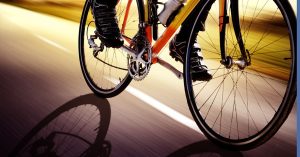
Safety reminders for drivers as cyclists return to the road in Boston.
In Boston, many cyclists take a winter break. As this nears an end, drivers should get ready to commute alongside cyclists again. Everyone should be aware of the risks for bicycle accidents at intersections. These include right hook accidents, which occur when a driver fails to yield to a cyclist while turning right.
Drivers must remember that cyclists have the same rights and responsibilities as drivers. Here, we share a few safety tips for drivers from the National Highway Traffic Safety Administration (NHTSA):
- Obey the speed limit.
- Drive defensively. Cyclists may need to leave their lane for safety reasons and may not give you much notice.
- Yield to cyclists just as you would another motor vehicle.
- When turning right on a red light, check for cyclists to the right and behind you. Stop completely and look in both directions – left, right, left and behind.
- Provide cyclists with adequate space.
- Pass cyclists with care. Do not pass too closely and only do so if you would pass a motor vehicle in the same situation.
- Check before you pull out or back up in parking lots.
- Check for cyclists when at stop signs. Expect that a cyclist may come up behind you while you wait for your turn to go.
Driving Safely Near Bicyclists in Massachusetts
Gone are the days when drivers rarely saw a cyclist on the road. It’s critical for drivers to be informed about their responsibilities near cyclists, particularly in intersections, and the potential for bicycle crashes.
As a driver, if you are near a bicyclist, the best approach is to slow down and give them room. Do not take your eyes off the cyclist or the road. If you don’t see a cyclist, take the opportunity to look.
Leave the bicycle lane for cyclists – this is the law in Massachusetts and if you neglect to follow it, you could hit a cyclist, causing serious injury and confusing other drivers. And this could lead to domino-effect collisions with other vehicles, cyclists or pedestrians in the area.
Expect cyclists will be traveling in front of you, as well as behind you. In fact, they are more likely to be behind you, to the right (though they are allowed to travel in the center of the lane in Massachusetts if they need to). Checking your mirrors is essential, as is left-right-left and behind checking. This is true even after you park because cyclists could be riding by and by opening the door at the wrong time, you could cause a bicycle dooring injury.
Finally, remember cyclists may not be visible behind commercial trucks and other traffic. The cyclist may be out of your view, but just approaching the large vehicle behind you. If the vehicle behind you is obstructing your view, take an extra few seconds.
For more information, read our articles, “Facts About Bicycling Laws in Massachusetts,” or “Tips for Safe Bike Commuting in Boston.” You can also visit the MassBike website, which explains more about cyclist and motorist responsibilities or the NHTSA web page on bicycle safety.
Free Legal Consultation – Boston Bicycle Accident Attorneys
Breakstone, White & Gluck has extensive experience handling personal injury cases involving bicycle injuries in Boston and across Massachusetts. After a bicycle accident, our attorneys are here to provide clients with thorough investigation and aggressive representation. We understand the stakes are high when you have been injured on a bicycle because medical bills can mount quickly and no one expects to suffer an injury. But we have attorneys who are experienced as lawyers and as cyclists. We are committed to partnering with our clients to obtain the best financial result in every case.
For a free legal consultation, contact Breakstone, White & Gluck at 800-379-1244 or 617-723-7676. You can also use our contact form.


